The Andes contains a great number of tropical glaciers and the meltwater they supply is an essential resource for people downstream who depend on it for irrigation and sanitation. Therefore, understanding these processes, their impacts, and implementing adequate science-based adaptation strategies requires an interdisciplinary approach. In this opportunity, this event is organized based on the concept to bring together global change researchers in order to address specific topics of interest to the mountain research community. The main work package will be state-of-the-art on the Knowledge-Based Glacier Retreat impacts in the Andes Chain.
This event seeks to become the axis and producer of information based on the study of water, with the leadership of nationally and internationally recognized specialists and aims to establish networking and communication among institutions (academic, research, governmental, and non-governmental) for potential research synergy.
The workshop will be carried out in both English and Spanish.
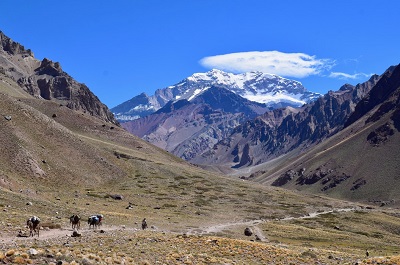
Mountain ecosystems are hotspots of biological and cultural diversity, as well as host endemic species and ancestral knowledge. They influence climate at different scales providing a variety of ecosystem services, such as the regulation of hydrological processes, and carbon storage. However, this type of ecosystem is particularly vulnerable to natural and anthropogenic threats, for instance, volcanic activity, floods, soil erosion and degradation, and loss of vegetation cover due to inadequate agricultural and industrial practices.
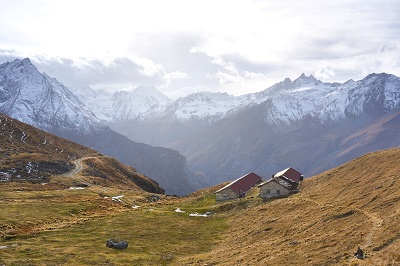
Climate change affects populations in developing countries that have limited economic resources, especially in which agriculture and livestock are the main economic activity. Little has been done in terms of improving land-management practices as an important and practicable climate adaptation strategy in remote areas. It is important to implement multidimensional and interdisciplinary strategies of adaptation and mitigation measures in order to reduce the vulnerability of natural ecosystems and surrounding communities.
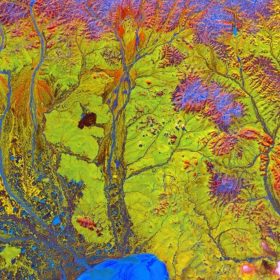
Tropical glaciers are receding rapidly since the 20th century leaving new glacial lakes behind and releasing sediment to valley areas and revealing topographic depressions that may become natural reservoirs for glacier runoff. These thawing landscapes represent a risk for the nearby downstream communities. Glacier melting is very unstable and can produce avalanches or landslides, and, potentially, a glacier lake outburst flood.
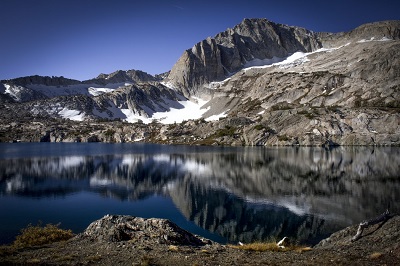
Glaciers are a major source of freshwater, particularly in tropical and subtropical regions, because they balance the temporal variability in the streamflow of mountain rivers. However, glacier shrinkage on the water security of mountains and downstream lowlands is induced by climate change impacts, generating important challenges in terms of water security and the socio-economic vulnerability of its population.
Provost, University of Engineering and Technology - UTEC, PE. RA: Landscape Risk Assessment, geomorphology in glaciers, and high mountain systems.
Associate Professor, School of Geography, University of Leeds, UK. RA: Dynamics of mountain glaciers, evolution of glacial and alpine environments.
Assistant Professor, Department of Environmental Engineering, University of Engineering and Technology - UTEC, PE. RA: Environmental Fluid Mechanics and Dynamics.
Assistant Professor, Department of Environmental Engineering, University of Engineering and Technology - UTEC, PE. RA: Water Resources Management, hydrology, and hydroclimatology in arid zones.
Reader in Hydrology and Water Resources, Department of Civil and Environmental Engineering, Imperial College London, UK. RA: Water Resources Management, impacts of environmental change on the water cycle.
Abstract Submission
July 22, 2019
Abstract Notification
July 29, 2019
Grant Request Deadline
July 15, 2019
Grant Awardees Notification
July 31, 2019
Symposium
August 23 to 24, 2019
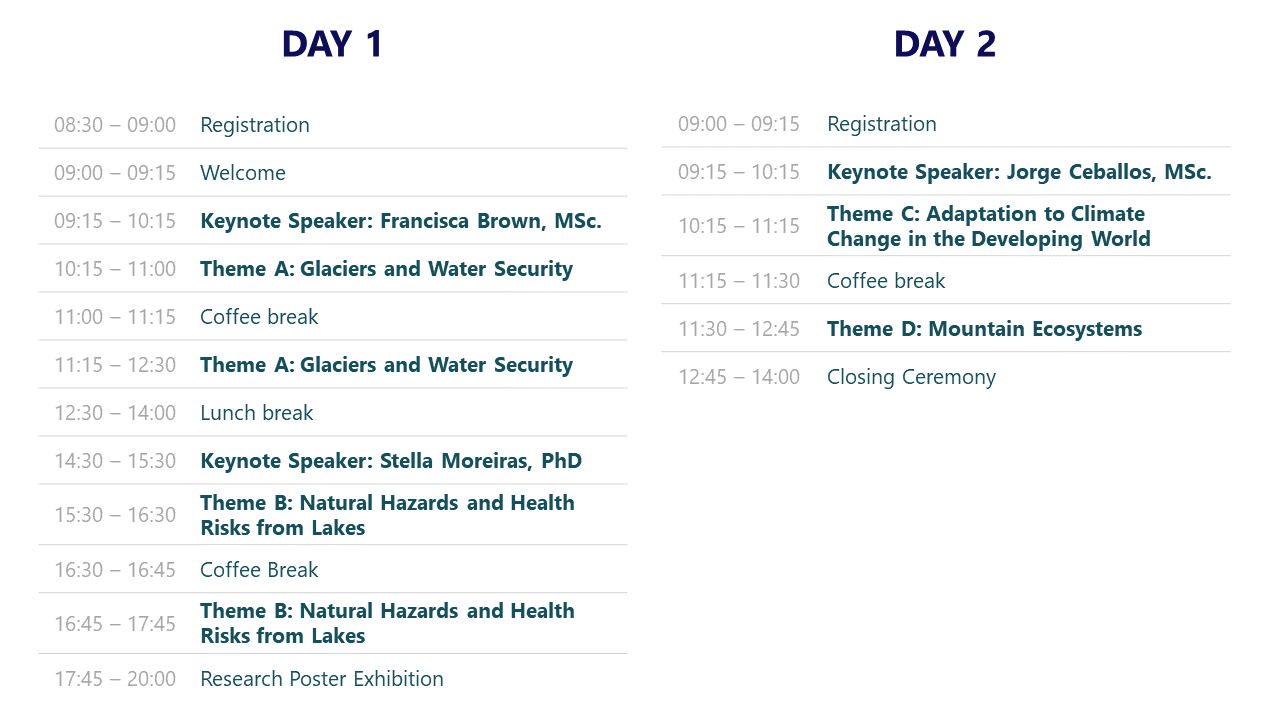
Authors are invited to submit their abstracts electronically on the 4 themes listed above for review by the Congress Scientific Committee.
Abstracts should be in English and of 300-400 words and applicants can include figures.
Abstract templateThe registered participants will have access to share experiences and knowledge with leaders in their area of specialization, form professional networks and share with other professionals from different sectors.
Registration FormAbstracts will be received until , 6:00 p.m. UTC.
Those interested in applying for travel expenses (travel, lodging, and meals) should submit a letter of motivation with the following information:
Available financial aid is given by MRI and UTEC.
The financing can only be requested by the people of Latin America who previously sent the abstract. Early career researchers are highly encouraged to apply.
Applications for funding will be received until UTC
Abstract and Grant Applications